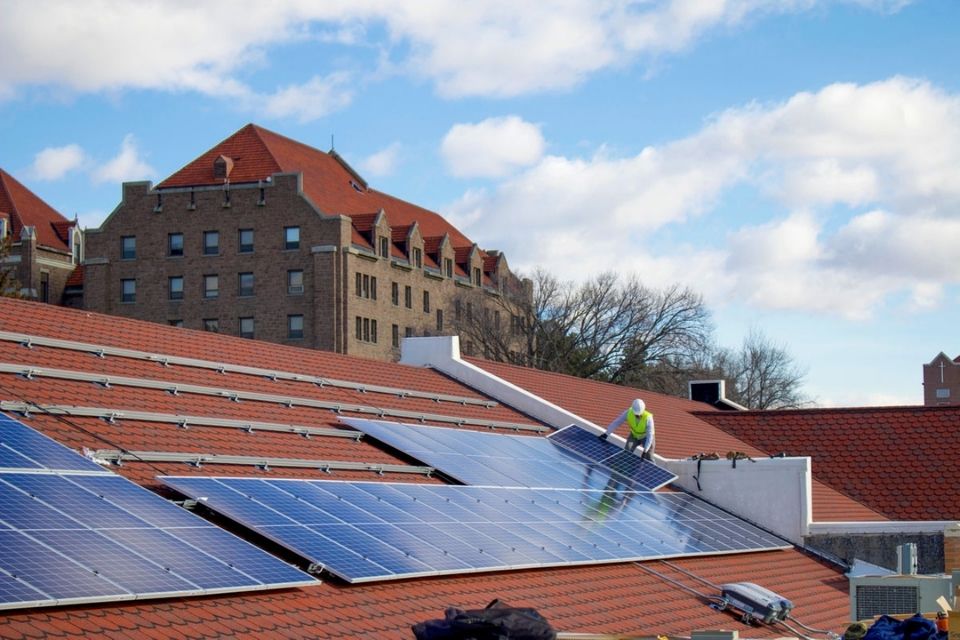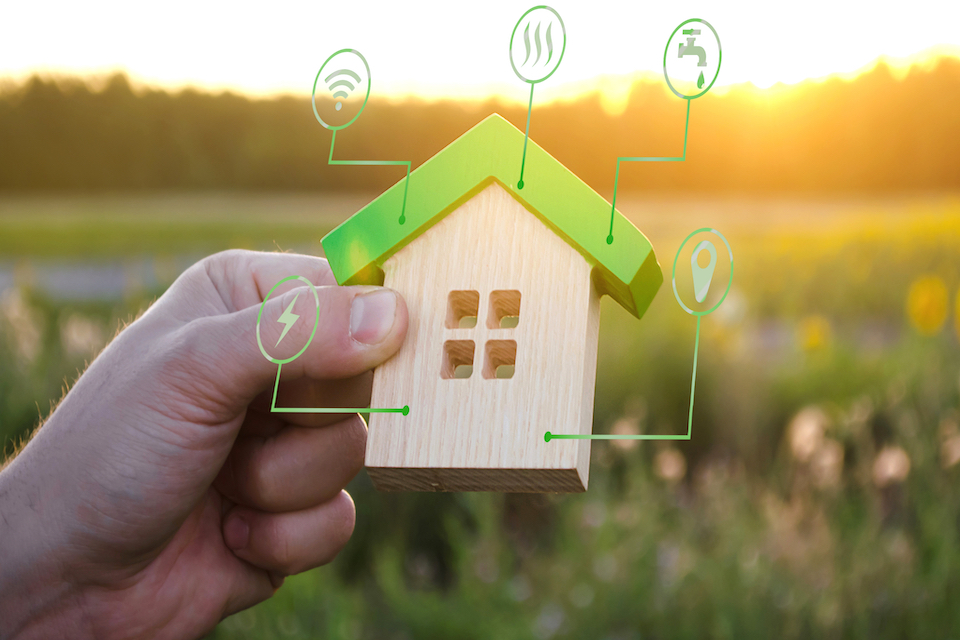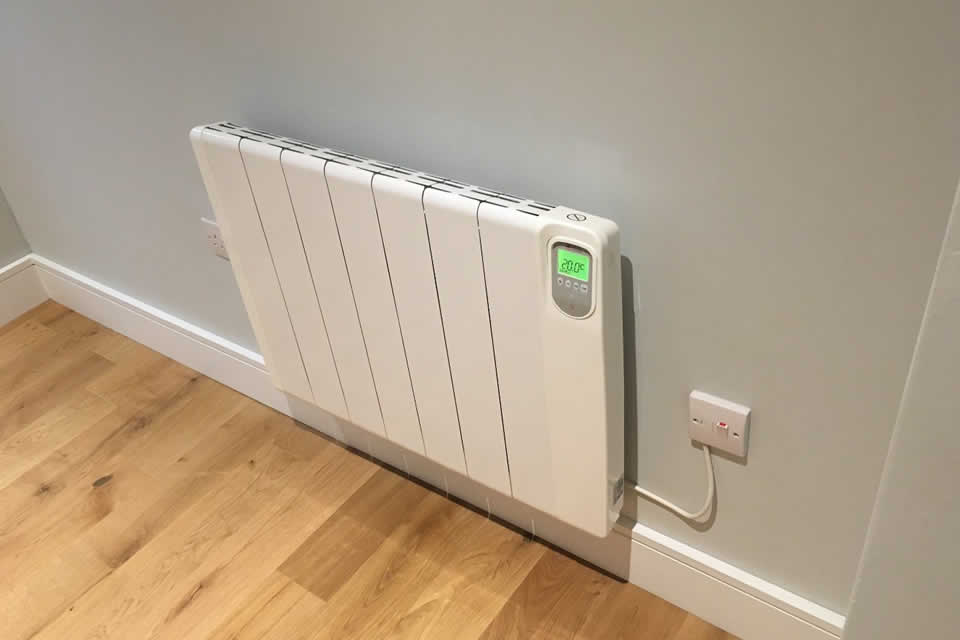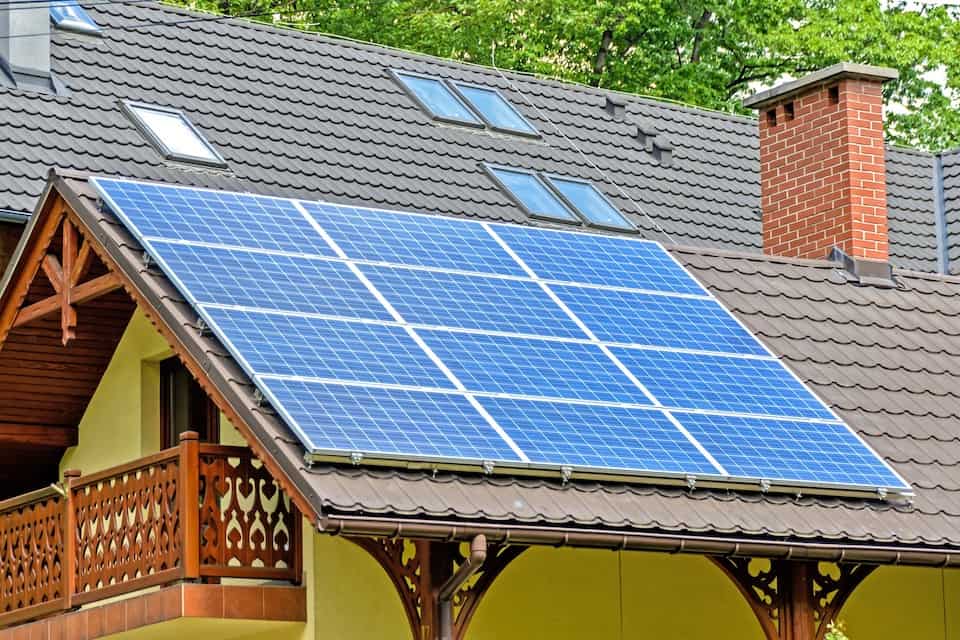How Much Are Solar Panels?
So, what is the average cost of solar panels?
Depending on the complexity of the job, the average cost for installing solar panels is usually somewhere between £2500-£9000.
Solar panels are a great option to consider as a way to reduce the amount of electricity you have to use, cutting the costs of your energy bills.
What does the price depend on then?
The price you can expect to pay for the job depends on many factors including the type of solar panel you are having installed, how many solar panels are being installed, how long the job will take overall, and your location within the UK.
Why should you invest in solar panels?
Even though the cost of solar panels may seem quite steep, it is a great investment. Fitting solar panels can help you save a significant amount on your energy bills, while also helping you earn some income.
How many types of solar panel are there available?
There are two major types of solar panel – polycrystalline and monocrystalline. Monocrystalline solar panels are the most efficient and also last longer than other types of solar panel.
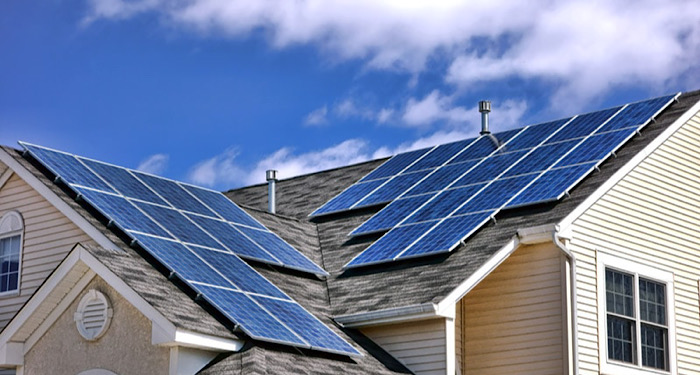
While not a cheap investment, due to the advancements of solar energy technology, the cost of solar panel installation has fallen dramatically in recent years.
What about solar system sizes?
Solar panels also come in different system sizes, which usually range from 1kW-5kW. These sizes determine how much energy the solar panels can provide to the home. The higher the wattage you choose, the more expensive it is.
As you can see, there are many ranges of different solar panels that you can choose from, and this is why the solar panel prices range so widely.
For example, a 1kW monocrystalline solar panel will cost around £2000-£3500 on average whereas a 5kW monocrystalline solar panel system will cost around £7500-£9000.
Lets have a look at some examples of job types, prices and timescales...
Solar Panels Prices
The table below highlights some of the costs you can expect for different types of solar panel installation jobs:
| Job Description | Timescales | Price of Solar Panels | Cost for Labour |
|---|---|---|---|
| 1kW Monocrystalline | 2-3 days | £2500-£3500 | £400-£500 |
| 2kW Monocrystalline | 2-3 days | £3000-£4500 | £400-£600 |
| 3kW Monocrystalline | 2-4 days | £4500-£5500 | £500-£700 |
| 4kW Monocrystalline | 2-4 days | £6000-£7500 | £500-£700 |
| 5kW Monocrystalline | 2-4 days | £7000-£9000 | £600-£800 |
| 1kW Polycrystalline | 2-3 days | £2000-£2500 | £400-£500 |
| 2kW Polycrystalline | 2-4 days | £3500-£4500 | £400-£500 |
| 3kW Polycrystalline | 2-4 days | £4000-£6000 | £500-£600 |
| 4kW Polycrystalline | 2-4 days | £6000-£7500 | £600-£700 |
| 5kW Polycrystalline | 2-4 days | £7000-£8500 | £600-£800 |
- How Much Are Solar Panels?
- What are the Supply Costs of Fitting Solar Panels?
- What are the Additional Costs of Solar Panel Installation?
- Tradesmen Costs for Installing Solar Panels
- How Long Does It Take to Remove and Replace Solar Panels?
- Types of Solar Panels
- Benefits of Solar Panels
- How Much Does It Cost to Remove Solar Panels?
- FAQs
- Sources
What are the Supply Costs of Fitting Solar Panels?
In this section, we will look at the prices if you were to buy solar panels on their own without the cost of labour.
You may be interested in this if you are planning a DIY solar panels job. If you are looking to purchase solar panels yourself, you should ensure that you buy from a reliable retailer.
Solar panels on their own will usually cost around £350-£500 per panel. This price will vary depending on the type and size of the system.
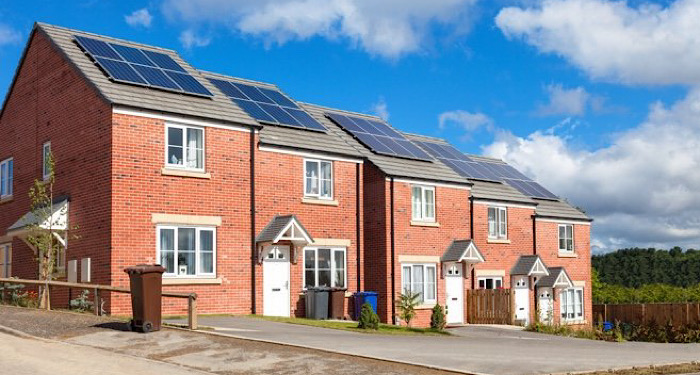
You will need a significant budget if you are looking to install solar panels at your home and you should also check that your roof is suitable to have solar panels installed before you invest in the panels.
As mentioned earlier, monocrystalline solar panels cost a little more than polycrystalline solar panels. For monocrystalline, you can expect to pay around £400-£500 per m2 compared to polycrystalline, which are around £250-£300 per m2.
What are the Additional Costs of Solar Panel Installation?
When you have solar panels installed at your home, you might want to consider several additional costs.
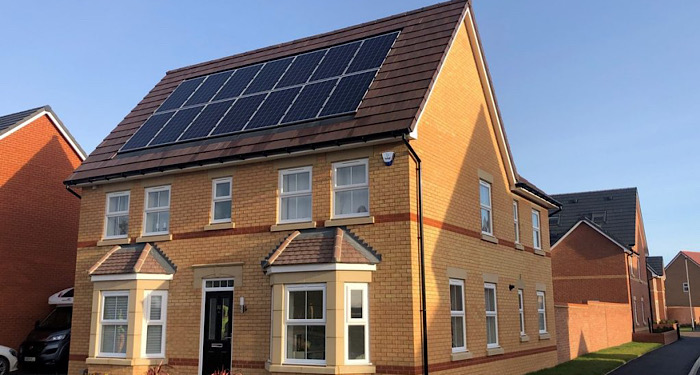
Below is a list of some additional costs that you may need to consider when it comes to solar panel installation:
- Roof repair - £120-£900
- Solar battery storage system - £1200-£6000
- Scaffolding - £10-£30 per day
- Solar panel cleaning - £3-£10 per panel
- Repairs and maintenance - £140-£400 per panel
- Special water tank - £2000-£4000
- Solar panel inverter - £1000-£15,000
Tradesmen Costs for Installing Solar Panels
Depending on the size of the job, solar panels will usually take around 2-3 days to install. The average solar panel installation contractor will usually charge around £150-£200 per hour. As you can see, the prices for labour can easily add up for larger jobs.
Most contractors will incorporate the price of labour into the overall cost of the job. However, you can ask for a breakdown of costs from them if you're curious about how to overall price is added up.
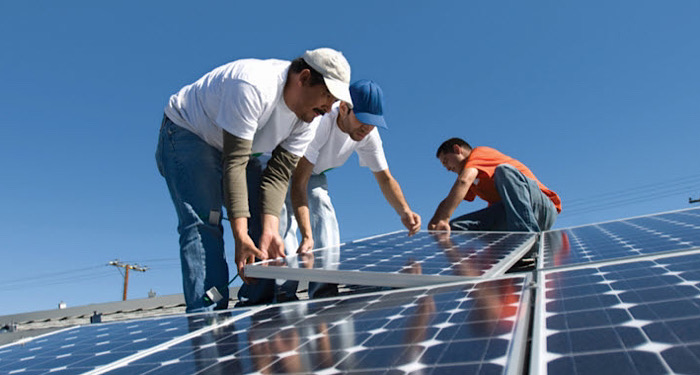
You should also note that some things can affect the cost of labour. For example, if your roof is in poor condition, it may need to be fixed before installing solar panels.
Also, if you are based in London, you can expect the cost of labour to be higher than those based in the North or other parts of the UK.
How Long Does It Take to Remove and Replace Solar Panels?
The timeframe for installing solar panels can depend on a number of factors. However, the average time it takes to install solar panels on the roof of a house is around 2-3 days.
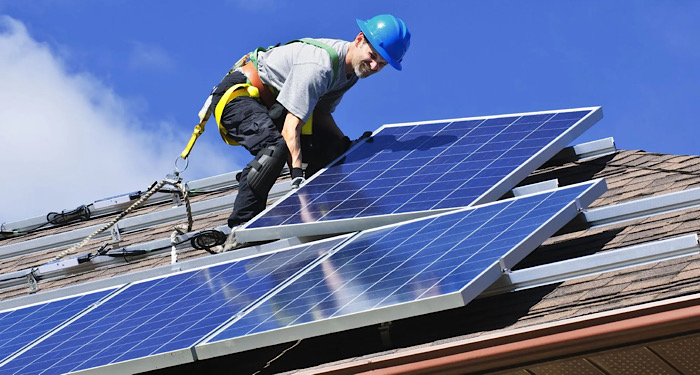
Some of the things that can affect the timescales include the size of the job, the roof's condition, and the ease of access to the roof.
Types of Solar Panels
There are two common types of solar panels that you can have installed at your home. These are monocrystalline and polycrystalline.
This section of the article will go over the details about each of these two types of solar panel and the advantages and disadvantages of each type.
Monocrystalline Solar Panels
Monocrystalline solar panels are a popular option and considered to be the better option of the two. This is because they are more durable and more efficient.
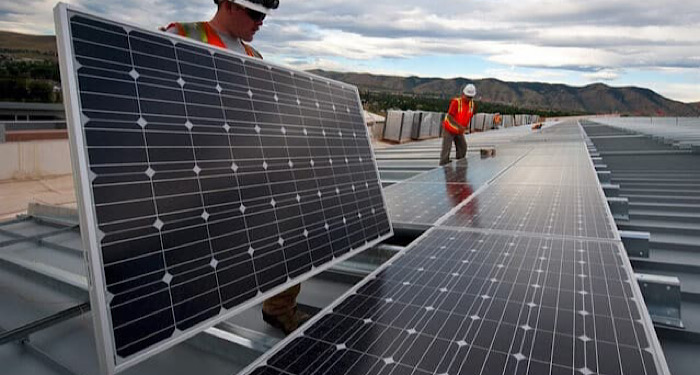
Below is a list of the pros and cons of monocrystalline solar panels:
Pros:
- They last longer than other types of solar panels
- They are more efficient than other types of solar panels
- They are more robust and durable than other types of solar panels
- They don't take up much space compared to other solar panels
Cons:
- They are quite expensive
- Their performance is affected by changes in temperature
- The process of manufacturing them creates a lot of waste
Polycrystalline Solar Panels
This type of solar panel is significantly cheaper than monocrystalline solar panels. However, they are less efficient.
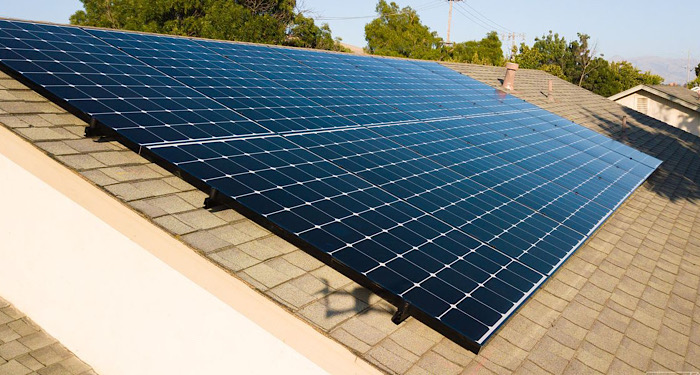
Below is a list of the pros and cons of polycrystalline solar panels:
Pros:
- Don't produce as much waste as monocrystalline solar panels
- They are a more affordable option
- They are more efficient in warm weather
Cons:
- They don't last as long as other types of solar panels
- They are not as efficient as monocrystalline solar panels
- The panels are larger and require more room for installation
Benefits of Solar Panels
There are several benefits to having solar panels installed at your home. Below is a list of the main advantages of choosing to have solar panels installed on your roof:
Save Money
This is possibly the most popular advantage of solar panels. They can really help you save money because you'll use less energy from the grid and, therefore, save money on your energy bills.
Low Maintenance
Solar panels are great because they don't require much maintenance. Solar panels also last for a very long time, and you can easily make back your investment within around a decade.
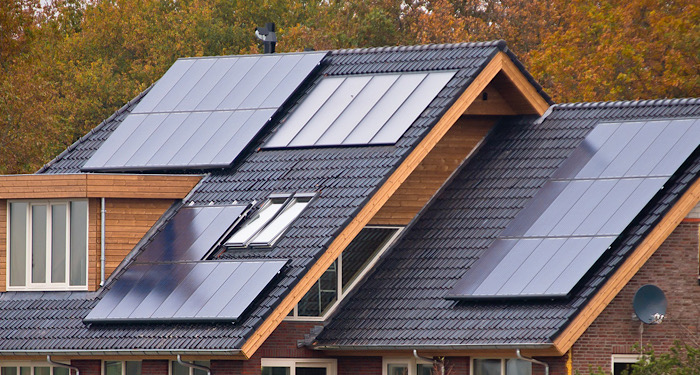
Good for the Environment
Solar-powered energy is renewable and clean, which means that it helps you reduce your carbon footprint. This is one of the reasons why solar panels are becoming more and more popular.
How Much Does It Cost to Remove Solar Panels?
There are occasions when you may wish to remove your solar panels, for example, if you are having your roof repaired. In these cases, it is usually best to hire a professional to do this for you.
The average cost for solar panel removal is around £300-£500, plus an additional £100 to disconnect the panels from your electrical system.
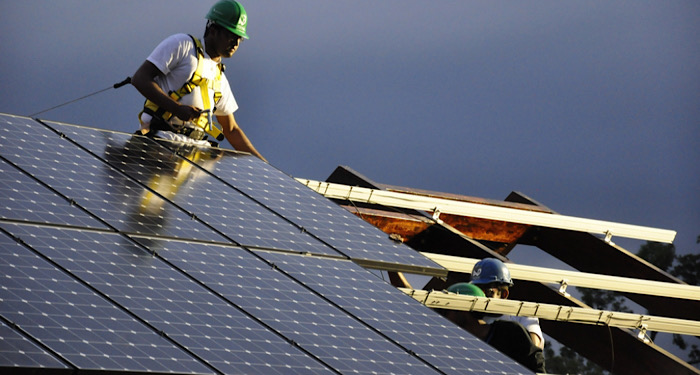
If you are completely removing your solar panels and wish to have them disposed of, this could cost an additional £150-£200 for the cost of waste disposal.
It is possible to remove solar panels as a DIY job. However, it is always recommended that you hire a professional, especially if you are not completely savvy on the DIY of it.
FAQs
Q: How do solar panels work?
A: In simple terms, solar panels work by absorbing particles of light which knock electrons free from atoms, and this generates electricity which can then be fed through to your home.
Q: What are the best solar panels?
A: Monocrystalline solar panels are the most popular as they are much more efficient and durable than other options.
Q: Can you get portable solar panels?
A: You can get portable solar panels to power small objects. These tend to be small and easily transportable and are often used when camping.
Q: What are flexible solar panels?
A: Flexible solar panels are ultra-thin, flexible, and lightweight. These panels are very beneficial when you want a panel that can be moved or stored easily.
Q: What are solar panel grants?
A: You can't get a solar panel grant in the traditional sense of the word; however, you can get something called a feed-in tariff. This is a government scheme that pays you for 20 years after you have had your solar panels removed.

